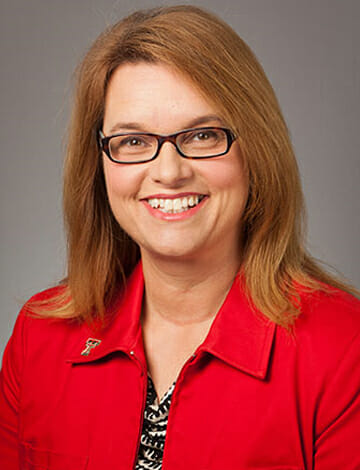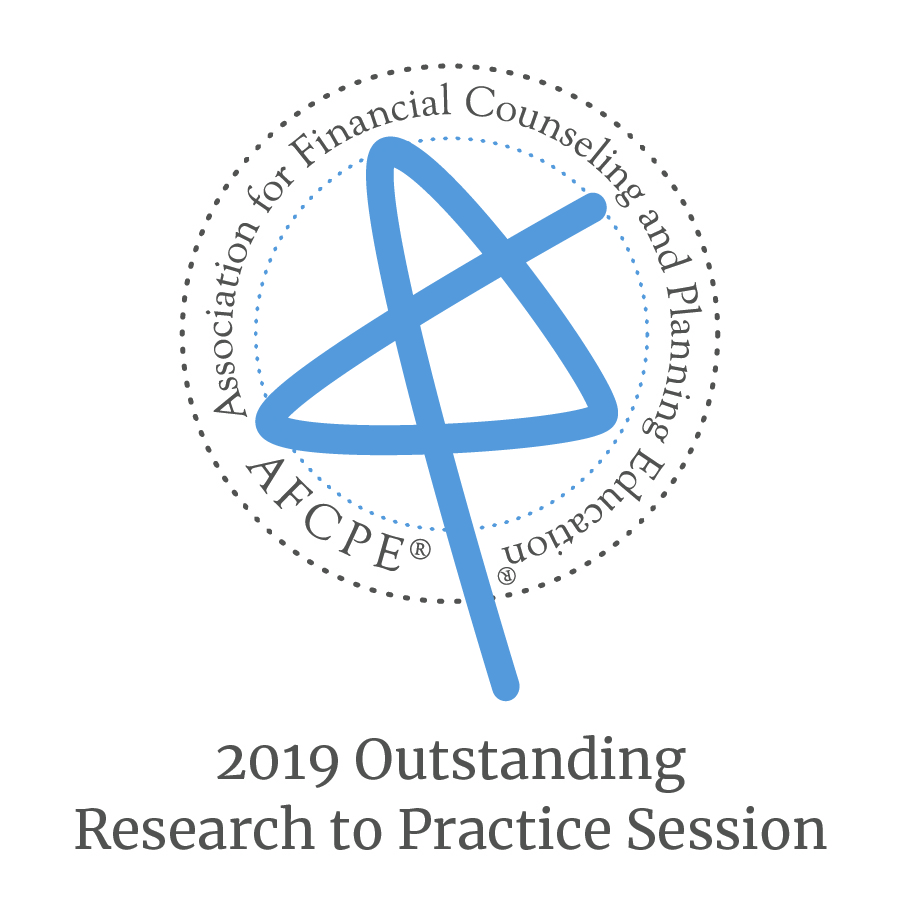Congratulations to the winners of the Outstanding Symposium Research to Practice Award!
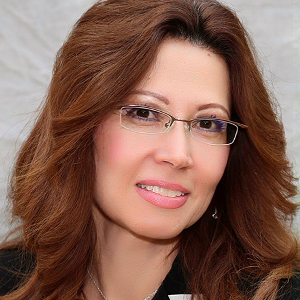

2024: Lucy M. Delgadillo and Glen Andrew Haas
The 2024 award goes to Lucy M. Delgadillo and Glen Andrew Haas for “What did we learn from the FBI that we can use in coaching and counseling? 50 Non-Verbal Cues in 50 minutes.”
In this session, financial professionals will discover the profound significance of non-verbal communication, as an educational opportunity to enhance their coaching and counseling soft skills. Non-verbal cues are genuine expressions of our inner thoughts and feelings. While we may maintain a composed demeanor, our bodies reveal the truth, as expertly highlighted by former FBI agent, Joe Navarro (2020). For instance, our lips play a crucial role in conveying subtle nuances. The most honest part of our bodies: our feet. This seminar offers a unique opportunity to explore 50 non-verbal cues that may indicate when you are building (or losing) empathetic connection, active listening and establishing trust and intimacy in our financial sessions.
Lucy M. Delgadillo, Professor, and Glen Andrew Haas, Assistant Professor, Utah State University
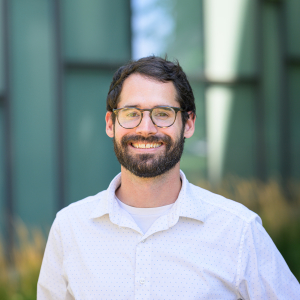

2023: Adam Felts and Joseph Coughlin
The 2023 award goes to Adam Felts and Joseph Coughlin for “Developing a Caregiving “Playbook” for Financial Planners.”
In 2021, researchers began a project with a large financial services company to develop a “playbook” to help guide client-facing financial planners who work with family caregivers. This session discussed the co-creative process of developing the playbook as well the playbook itself, which provides an overview of how financial professionals can work with and assist caregiving clients.
Adam Felts, Research Associate, MIT AgeLab and Dr. Joseph Coughlin, Director, MIT AgeLab

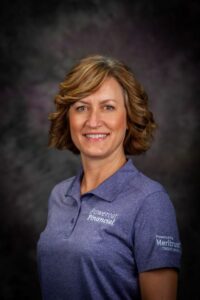
2022: Jodi Kaus and Dr. Han Na Lim
The 2022 award goes to Jodi Kaus and Dr. Han Na Lim for “Evaluation on the Effectiveness of College Financial Success Plan.”
The pilot project called College Financial Success Plan (CFSP) was developed at a large Midwest public university. The purpose of the CFSP project is to help returning freshmen to determine a personal plan for paying the costs of obtaining their undergraduate degree. The project launched in the spring 2020 and was implemented again in spring 2022. Overall, participants reported that the CFSP process and resources were extremely useful. Through the CFSP process, participants reported that they are likely to reduce the amount of student loan borrowing and know more about how much student loan debt they can afford. When examining changes between before and after the CFSP program, knowledge about student loans was increased and financial stress and anxiety were decreased after the CFSP session. The findings provide insights for financial educators or counselors working at higher education and financial practitioners working with family with college age children.
Jodi Kaus and Dr. Han Na Lim, Kansas State University
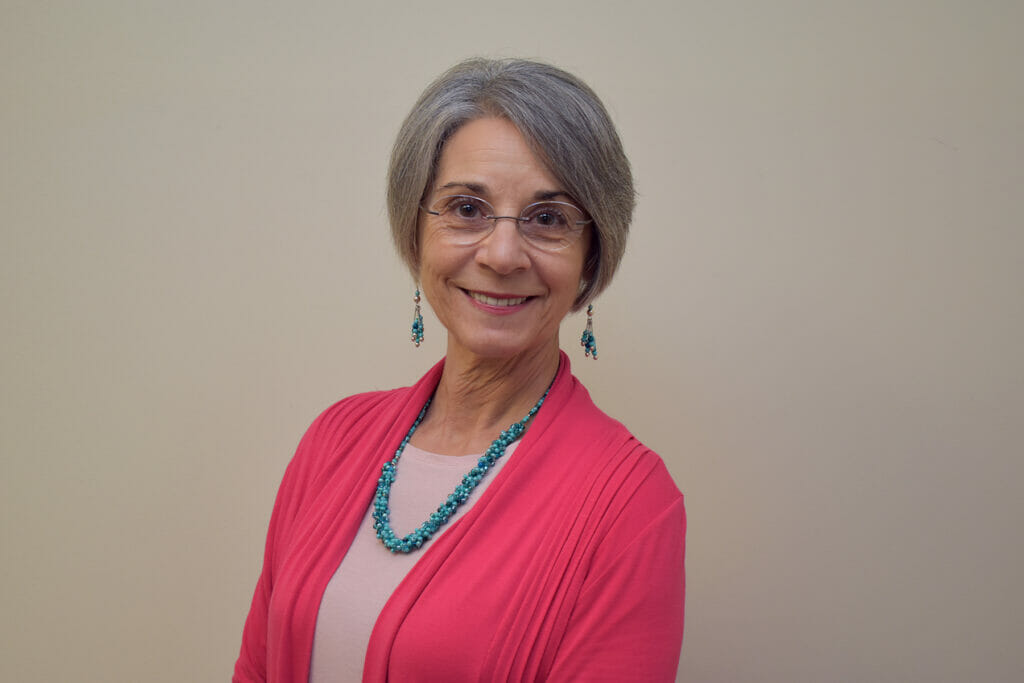

2021: Joyce Serido and Sharon Powell
The 2021 award goes to Joyce Serido and Sharon Powell for “Make Money Make $ense.”
In this research-to-practice forum, we demonstrate how to use a 10-lesson youth financial activity toolkit to encourage positive financial socialization. Each activity focuses on a specific financial topic (e.g., values, smart shopping, saving, goal setting) framed in the context of experiences that youth encounter. Each activity provides opportunities for supportive adults to engage youth in making financial choices. We describe the collaborative process used to develop the toolkit and to validate the activities. In addition, we provide examples of how we adapted the activities for use in multiple settings and across different age groups.
Joyce Serido, University of Minnesota and Sharon Powell, University of Minnesota ExtensionM
2020: Sandra J. Huston
The 2020 award goes to Sandra J. Huston, PhD for “Using Research to Inform and Enhance Financial Learning Practices.”
Using a variety of personal finance, economic, and pedagogical theories, along with research findings from previous studies, several quasi-experimental and descriptive studies have been conducted to test hypotheses designed to establish evidence-based financial education (specifically financial learning) practices. These research studies have been conducted over the past three years in collaboration with a college-level personal finance education program at a large university in the south-central region of the United States. Over 20 instructors and 3000 students were involved in this collaboration for data collection to support this research.
2019: Kristy Archuleta, Joy Clady, Christina Glenn, Danah Jeong, & Derek Lawson
The 2019 award goes to Kristy Archuleta and Danah Jeong, University of Georgia; Joy Clady and Derek Lawson, Kansas State University; and Christina Glenn, Fort Hays State University for “Can Money Habitudes Make a Difference? An experiment to bridge research and practice.”
The purpose of this research was to examine if a tool used in practice – Money Habitudes – could make a difference in a number of personal domains of one’s life – including financial behaviors, financial anxiety, relationship satisfaction, similar money goals and values, couple communication with money, and financial cognitions. The results indicated that playing online Money Habitudes improved a number of financial domains.
Comments are closed.
